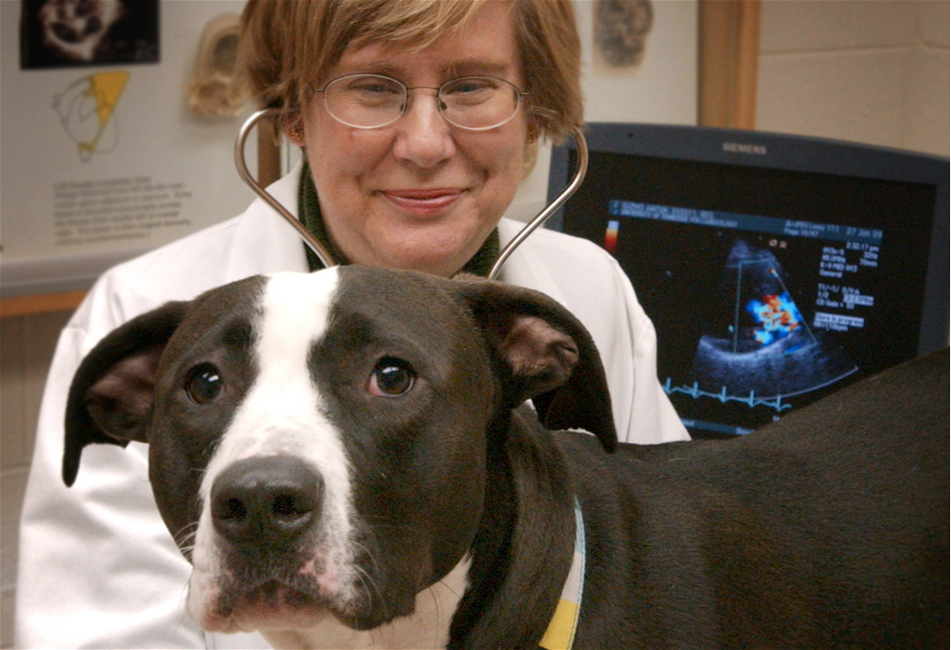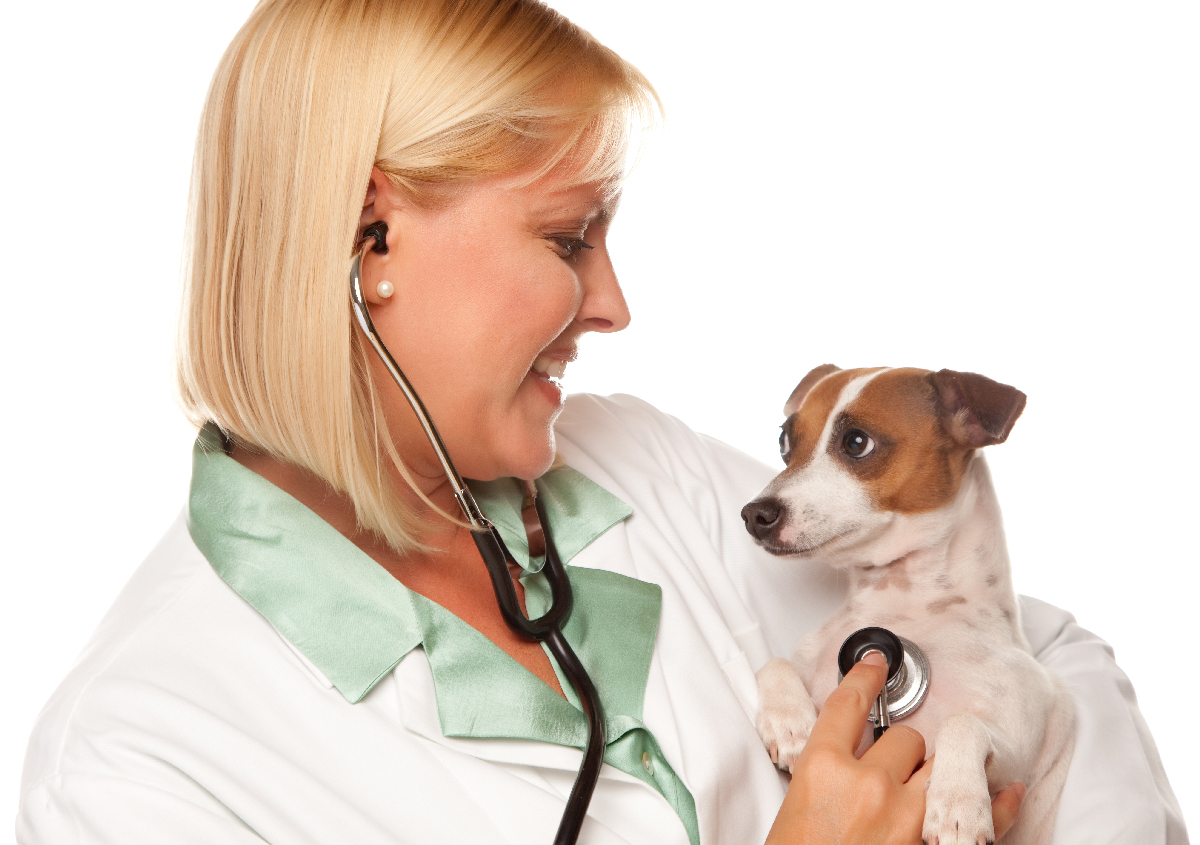Checking Out the Essential Services Supplied by a Veterinary Cardiologist: Recognizing Ultrasound and CT Check Methods
Veterinary cardiologists play an important duty in the health of pet dogs by identifying and dealing with different heart problems. They utilize sophisticated imaging strategies, such as heart ultrasound and CT scans, to supply exact evaluations. Each method has its distinct benefits and applications. Comprehending these techniques is vital for animal owners seeking the most effective treatment for their friends. What elements should family pet owners think about when picking between these analysis tools?

The Role of Veterinary Cardiologists in Pet Dog Health Care
Vet cardiologists play a vital duty in the medical care of family pets, focusing especially on identifying and dealing with heart-related problems. They possess specialized training that allows them to translate complex analysis tests and identify numerous cardiovascular concerns. These specialists make use of sophisticated strategies, such as echocardiography and electrocardiography, to assess heart function and framework accurately.Veterinary cardiologists additionally establish tailored therapy strategies that might include drugs, way of living alterations, and, sometimes, surgical treatments. Their competence prolongs to enlightening family pet proprietors about heart health and wellness, emphasizing the importance of regular exams and early discovery of potential troubles. Partnership with basic vets is important, as it ensures detailed treatment for pet dogs with presumed cardiac issues. By providing specialized solutions, vet cardiologists substantially enhance the quality of life for pet dogs and supply peace of mind for their proprietors, enhancing the relevance of heart wellness in total family pet health.
Typical Heart Issues in Animals
Usual heart issues in animals can considerably affect their health and high quality of life. Heart murmurs, numerous kinds of cardiomyopathy, and hereditary heart issues are amongst the most widespread conditions that veterinarians run into. Board Certified Veterinary Cardiologist. Understanding these problems is essential for family pet proprietors to guarantee prompt diagnosis and ideal treatment
Heart Murmurs in Pets
Although heart murmurs can be a source of issue for pet dog owners, they are not always a sign of serious wellness problems. A heart whispering is an abnormal noise created by unstable blood flow within the heart. In pet dogs, these whisperings can be caused by different aspects, including congenital heart problems, shutoff concerns, or perhaps stress during evaluations. Numerous animals with heart murmurs lead normal lives without significant health influences. To identify the underlying cause, veterinary cardiologists commonly employ analysis methods such as echocardiograms and Doppler ultrasounds. Early discovery and analysis are vital, as they might help manage any possible heart issues efficiently. Pet dog proprietors are motivated to consult their vet for a complete evaluation if a heart murmur is found.
Cardiomyopathy Kind Explained
Cardiomyopathy encompasses a group of illness influencing the heart muscle mass, leading to endangered cardiac function in pet dogs. One of the most typical kinds consist of expanded cardiomyopathy (DCM), hypertrophic cardiomyopathy (HCM), and limiting cardiomyopathy (RCM) DCM mainly affects canines, triggering the heart to compromise and enlarge, which lessens its capability to pump blood properly. In comparison, HCM is a lot more common in cats, characterized by the thickening of the heart wall surfaces, commonly resulting in obstructed blood flow. RCM, though much less common, takes place when the heart muscle mass becomes inflexible, limiting its capacity to loaded with blood. Each type presents special challenges in diagnosis and treatment, requiring specialized veterinary cardiological evaluation to guarantee peak monitoring and look after affected pets.
Genetic Heart Problems
Congenital heart problems stand for a considerable classification of heart problems in pet dogs, distinctive from gotten problems such as cardiomyopathy - Board Certified Veterinary Cardiologist. These defects are architectural problems present at birth, influencing the heart's typical function. Common kinds consist of patent ductus arteriosus, ventricular septal problems, and pulmonic stenosis. Signs may differ widely, ranging from mild to serious, and can include workout intolerance, coughing, and problem breathing. Early diagnosis through innovative imaging strategies like ultrasound is important for effective monitoring. Vet cardiologists play an important duty in identifying these problems and suggesting ideal therapy options, which might consist of medical administration or surgical treatment. Recognizing genetic heart defects allows for much better results and enhanced high quality of life for impacted pets
Comprehending Heart Ultrasound: How It Functions
A substantial variety of veterinary practices currently use heart ultrasound as a necessary diagnostic device for assessing heart wellness in animals. This non-invasive method utilizes high-frequency sound waves to develop pictures of the heart's structure and feature. Throughout the procedure, a vet technician applies a gel to the animal's breast and uses a transducer to discharge ultrasound waves. These waves jump off the heart and surrounding structures, generating real-time pictures on a monitor.Veterinarians can assess different aspects of heart wellness, consisting of chamber dimension, wall surface motion, and shutoff feature. In addition, heart ultrasound enables for the detection of irregularities such as fluid buildup and genetic heart defects. This technique is crucial for diagnosing problems that might not be noticeable with basic radiographs. By offering comprehensive info concerning the heart's makeup and performance, heart ultrasound help in creating effective treatment prepare for animals suffering from heart problem.
The Value of CT Scans in Detecting Heart Conditions
How do CT scans improve the diagnosis of heart problems in veterinary medicine? CT scans supply detailed cross-sectional photos of the heart and bordering frameworks, allowing veterinarians to envision complicated physiological relationships. This imaging method is specifically advantageous in identifying congenital heart problems, cardiac tumors, and irregularities in capillary. By utilizing sophisticated imaging formulas, CT scans can assess heart chamber sizes and function, supplying a detailed sight that may be tough to achieve with typical methods.Additionally, CT angiography can imagine blood circulation and identify areas of constriction or blockage, which is vital for intending prospective interventions. The rate and accuracy of CT scans likewise assist in fast diagnoses, vital in emergency circumstances. Inevitably, the incorporation of CT checks into vet cardiology greatly boosts the accuracy of medical diagnoses, making it possible for targeted treatment strategies and improving patient outcomes for animals struggling with heart problems.
Comparing Ultrasound and CT Check Strategies
While both ultrasound and CT scans are important tools in vet cardiology, they offer unique benefits and limitations that affect their usage in identifying heart disease. Ultrasound, or echocardiography, provides real-time imaging of the heart's framework and function, allowing vets to examine heart chambers, valves, and blood flow. It is especially effective for reviewing problems like congestive heart failure and cardiomyopathy. Ultrasound might be limited in envisioning certain anatomical structures due to individual size or obesity.In contrast, CT scans deal in-depth cross-sectional pictures of the heart and bordering tissues, making them perfect for recognizing architectural abnormalities, tumors, or vascular problems. CT scans give comprehensive understandings, they need sedation and may involve radiation direct exposure. Ultimately, the choice between ultrasound and CT scans depends upon the specific scientific situation, the individual's condition, and the info required for an exact medical diagnosis.
Therapy Options Readily Available Via Veterinary Cardiology
Veterinary cardiology offers a series of therapy options tailored to attend to different heart conditions in animals. Therapy strategies often begin with lifestyle modifications, consisting of diet regimen changes and exercise changes, targeted at improving general heart wellness. Drugs play a vital duty, with cardiologists recommending medications such as diuretics, beta-blockers, and ACE inhibitors to enhance and manage signs cardiac function.In much more extreme situations, interventional procedures, such as balloon valvuloplasty or stent placement, might be necessary to alleviate clogs or improve blood flow. For particular hereditary heart issues, medical choices might be checked out to correct structural issues. In addition, recurring surveillance helpful hints and follow-up treatment are necessary parts of a complete treatment plan, enabling timely adjustments based upon the pet's action to therapy. On the whole, vet cardiology concentrates on providing reliable, individualized care to optimize the look at these guys health and wellness of pet patients with heart disease.
How to Prepare Your Pet Dog for a Heart Examination
Preparing an animal for a cardiac examination is vital to assure precise outcomes and a smooth process. Proprietors need to first set up the visit with the vet cardiologist and go over any certain demands or issues. It is recommended to withhold food for a minimum of 12 hours before the assessment, as this assists boost imaging quality during treatments like ultrasound or CT scans.Additionally, preserving a calm setting on the day of the appointment can help in reducing the pet's stress and anxiety. It is helpful to bring along any kind of relevant clinical documents, consisting of previous examinations and medicines (CT Scans For Dogs). Proprietors must likewise ensure that their pet is comfortable and leashed throughout transport to the center. Ultimately, acquainting themselves with the evaluation process can minimize fears and assist in asking educated questions throughout the examination. By adhering to these actions, owners can add considerably to the performance of the cardiac evaluation
Frequently Asked Questions
Exactly how Lengthy Does a Heart Ultrasound or CT Scan Take?
The period of a heart ultrasound commonly varies from 30 to 60 minutes, while a CT check may take approximately 15 to half an hour. Factors such as the individual's problem can influence these time quotes.

Exist Any Threats Associated With These Analysis Treatments?

Can I Stick With My Pet Throughout the Treatment?
The veterinary facility's plan generally determines whether pet dog owners can continue to be throughout treatments. While some centers urge proprietor presence for convenience, others might call for splitting up to assure security and ideal problems for diagnostic imaging.
Just how much Do These Analysis Tests Normally Price?
The prices of analysis tests, such as ultrasound and CT scans, typically vary based on location and center. Typically, rates vary from a couple of hundred to over a thousand bucks, reflecting the complexity and innovation entailed.
What Is the Healing Process After a Heart Assessment?
The recuperation procedure after a cardiac evaluation involves keeping an eye on the family pet for any prompt responses, ensuring convenience, and restricting physical activity. Veterinarians usually give post-evaluation instructions to assist pet dog proprietors throughout this crucial healing period. Heart murmurs, various kinds of cardiomyopathy, and hereditary heart defects are among the most common problems that veterinarians encounter. A heart whispering is an abnormal audio generated by rough blood flow within the heart. Cardiomyopathy includes a group of conditions affecting the heart muscle, leading to endangered heart feature in family pets. Congenital heart issues represent a considerable category of cardiac issues in animals, unique from acquired problems such as cardiomyopathy. Ultrasound, or echocardiography, offers real-time imaging of the heart's framework and feature, enabling you could check here vets to examine heart chambers, shutoffs, and blood flow.